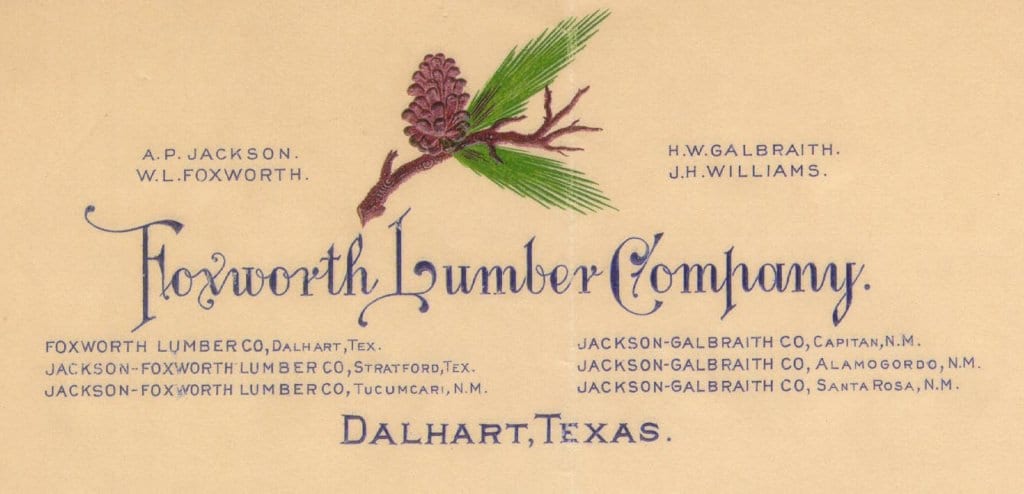
Foxworth-Galbraith’s origin is traced back to the late 19th century and the convergence of the two founding partners. Two men from different backgrounds, one a son of a Civil War veteran and the other a son of an Episcopal rector from Ireland.
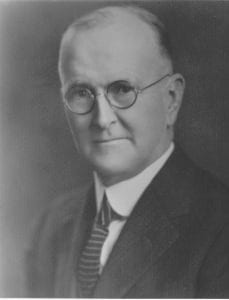
H.W. Galbraith
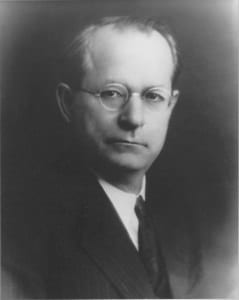
W.L Foxworth
The coming together of these two men with divergent backgrounds laid the foundation for what Foxworth-Galbraith is today. Family owned and operated since 1901, Foxworth-Galbraith continues as a leader in delivering construction and home improvement solutions guided by the founder’s principles. Service, dedication to our customers, integrity, and family values are principles that guide Foxworth-Galbraith Lumber Company.
THE EARLY YEARS
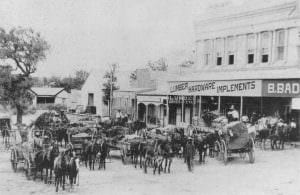 In the early summer of 1901, Foxworth-Galbraith was formed with five lumber yards, three in the Territory of New Mexico and two in the Texas Panhandle. Railroads dictated the location of the company’s first lumber yards. They brought the promise of prosperity to the emerging communities along their route.
In the early summer of 1901, Foxworth-Galbraith was formed with five lumber yards, three in the Territory of New Mexico and two in the Texas Panhandle. Railroads dictated the location of the company’s first lumber yards. They brought the promise of prosperity to the emerging communities along their route.
In 1919 Foxworth-Galbraith began operations in Mesa and Tucson, Arizona. Both of these locations and the state would prove to be central to the company’s operations for many years. At this same time, the petroleum boom that was becoming a key hallmark of Texas showed no signs of a letdown. In the boom town of Panhandle City, Foxworth-Galbraith maintained a yard that was open 24 hours a day to meet the seemingly unquenchable demand for products necessary for constructing wooden oil derricks.
SURVIVING THE DEPRESSION AND WORLD WAR II
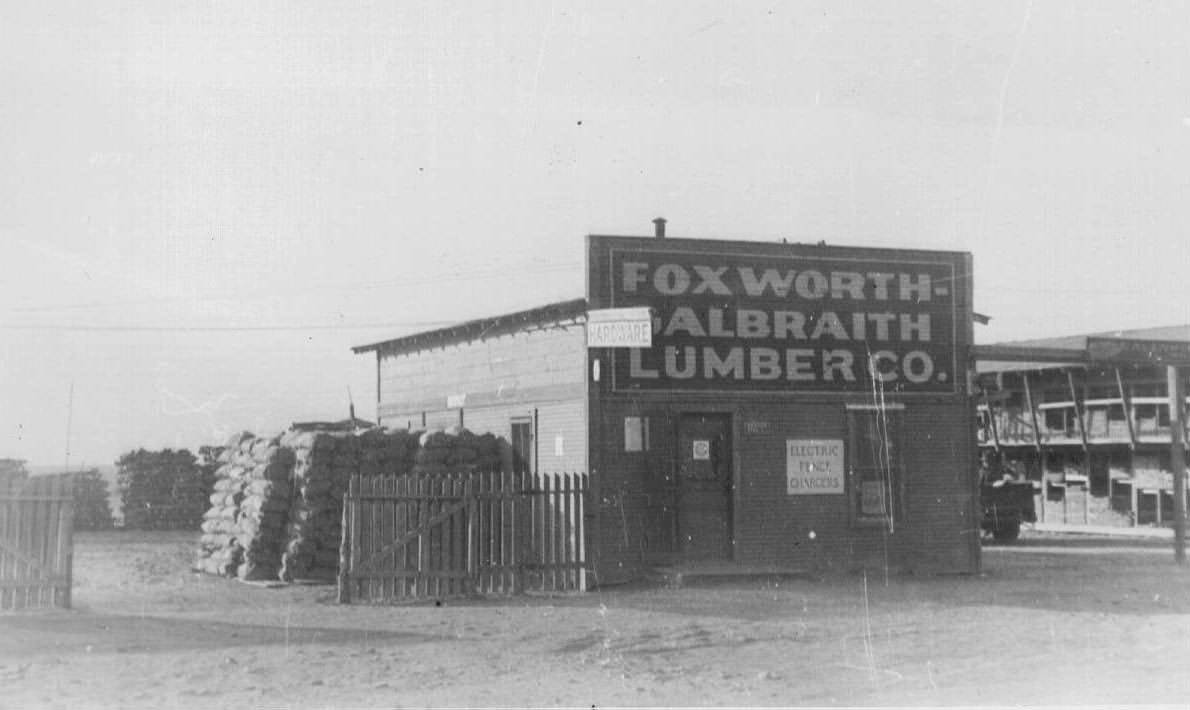 The company’s bleakest period began in October, 1929, when the stock market crashed triggering the beginning of a ten year economic slump. Rather than close its doors, as many companies did, Foxworth-Galbraith adjusted to the changed conditions and focused on financial prudence and adherence to the company’s core principles.
The company’s bleakest period began in October, 1929, when the stock market crashed triggering the beginning of a ten year economic slump. Rather than close its doors, as many companies did, Foxworth-Galbraith adjusted to the changed conditions and focused on financial prudence and adherence to the company’s core principles.
In November 1931, W.L. Foxworth, H.W. Galbraith, and J.C. Galbraith sent a cautious memo to all members of the organizations summarizing the company’s challenging economic situation and providing a road map for survival.
“Hoping that conditions might improve this Fall in our business, we have done very little in the way of salary reduction, preferring to take a loss for a year rather than to take steps which would entail too heavy hardships on those who have been working so loyally and faithfully with us. The result has been that we are losing money heavily every month to such an extent that the capital of this company will be perilously impaired by the end of the year.”
Recovery from the Depression was slow and steady under the leadership of W.L. Foxworth, who became president of the company in 1936, with the passing of one of the original founders, H.W. Galbraith.
For the nation and for Foxworth-Galbraith, US entry into World War II brought a new set of complexities and challenges. Many valued employees departed to serve their country in the military. Tire and gasoline rationing, complex price controls, and priority allocation systems for building materials made the daily routine of business more complicated than ever. To help provide lumber for its customers in this time of scarcity, Foxworth-Galbraith bought and operated a saw mill in Arkansas.
AN ERA OF GROWTH
 Following the war, America and Foxworth-Galbraith experienced an era of growth and prosperity throughout the next three decades.
Following the war, America and Foxworth-Galbraith experienced an era of growth and prosperity throughout the next three decades.
Under the leadership of W.L. Foxworth, J.C. Galbraith, and Jack Foxworth, Foxworth-Galbraith became a large network of retail building material stores consisting of 70 operations spread over Texas, New Mexico, and Arizona.
The 1970s and 1980s saw the leadership of the company turn to the third and fourth generation of the Foxworths and Galbraiths. This new wave of leadership brought the company into the latter years of the 20th century and a time of great expansion. In 1985, Foxworth-Galbraith expanded into Central Texas. In 1999, Brookhart’s was purchased to boost annual sales by nearly $80 million and give the company a presence in Colorado.
In 2006, Foxworth-Galbraith experienced their greatest year with revenue of almost $1 billion and ranking in the top 10 of largest professional dealers in the United States.
Our company values have not swayed in over 100 years. We continue to be guided by our core principles of service, dedication to the customer, integrity, and family values. We are one of the nation’s largest professional dealers, earning the distinction of premier vendor partnerships with some of the nation’s leading builders. We apply the same level of service and expertise we provide our professional clients to help customers complete smaller projects efficiently and successfully.


